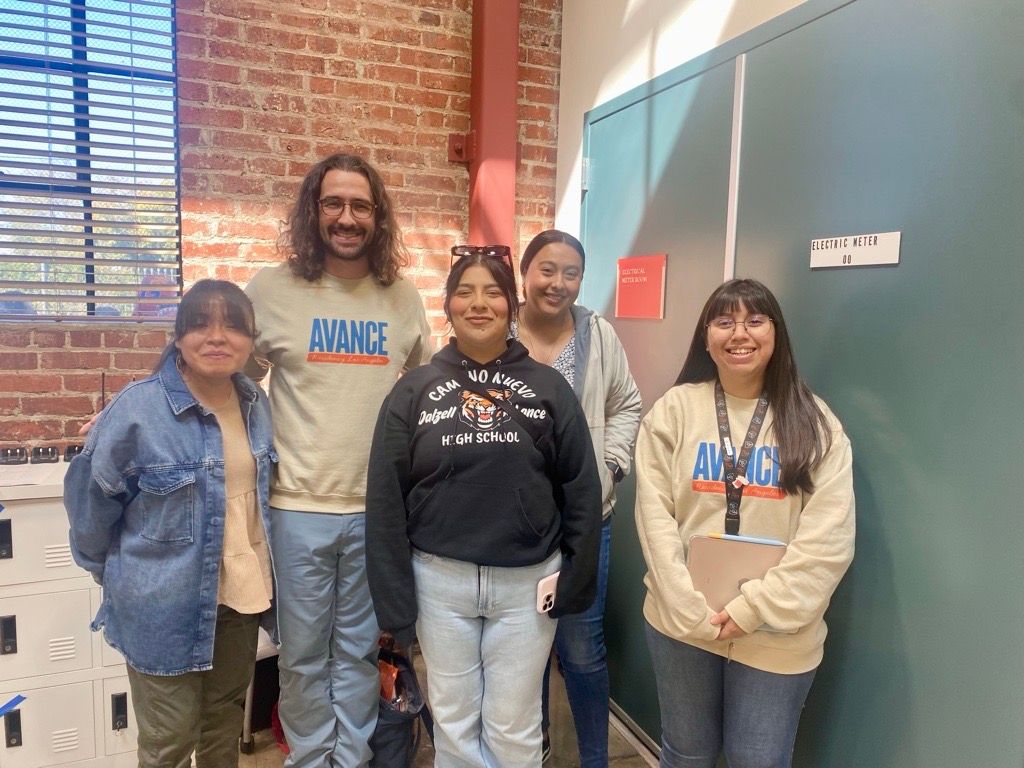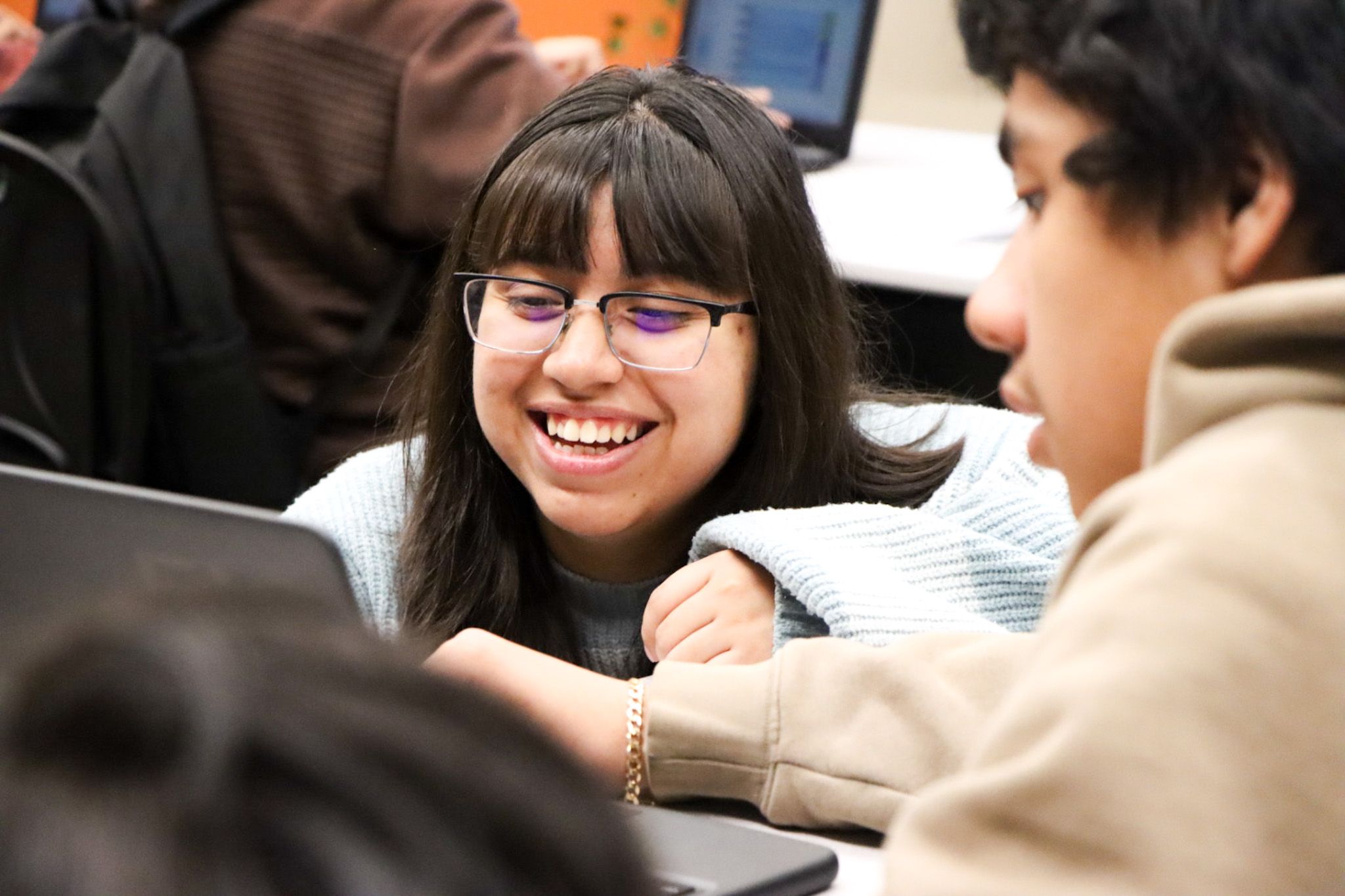LA2050 Blog
We’ve got access to the information that every Angeleno needs to make an impact. Our blog features the latest LA2050 news, announcements, features, happenings, grantee updates, and more.

Pueblo Nuevo’s Avance Teacher Residency Builds a Pipeline of Educators Rooted in Community
PostedOver the past month, we checked in with our 2024 grantees to learn how their funded programs, projects, and initiatives are progressing – and to better understand the impact they’re making across Los Angeles. Now, we are excited to share these interviews, with stories of growth, challenges, and community transformation.
Pueblo Nuevo Education & Development Group received funding through the LA2050 Grants Challenge from the Goldhirsh Foundation to support its Avance Teacher Residency, a credentialing pathway for community-based educators in Los Angeles. Below is an edited transcript of our conversation with their team.

LA2050: Your Avance Teacher Residency helps to remove barriers for those from historically marginalized communities to become credential teachers. Tell us more about the power and significance of educators who reflect and understand the communities they serve.
Pueblo Nuevo Education & Development Group: Most of our students and families are Latinx, and about 92% are the first in their family to go to college. So the students seeing folks in positions of power in the classroom who look like them, sound like them, and are from their same communities, really makes a difference in their access to education. It is also really powerful for the students to see themselves getting a higher education – or even a credential – that'll advance them through life.
As we wrap up our second cohort and now move into our third, we are continuing to recruit and select Avance residents that reflect the communities they serve, with diverse backgrounds. Roughly 98% of our residents across the three cohorts identify as BIPOC.
And, now that we have residents who are teachers of record, we have data that demonstrates that they have stronger teaching practices and higher student engagement compared to other first-year teachers. We also see how teachers with similar backgrounds and ties to their students are able to develop really strong relationships with students, while also pushing them towards higher-order thinking and challenging them as learners.
This year, we also built out a specific pathway to focus on dual language teachers and education specialists. Our dual language teachers, especially, really represent the students and their home languages. Many have their own stories and challenges around not having access to a dual language classroom growing up. This is the same with our Education Specialists; all of the residents who chose this path have a personal connection to it, whether it's their own neurodivergence or people in their lives who might have neurodivergence.
LA2050: What tensions, if any, have emerged in trying to disrupt traditional credentialing pathways?
Pueblo Nuevo Education & Development Group: The work we do is so meaningful and impactful but it can still be challenging to work within an educational system that was designed for some and not for others. For example, this year, we saw some challenges in internal recruitment. While we did have more external applicants than we have in the past, we found that within our own schools, many of our classified staff are not necessarily excited right now about becoming a teacher. We've been trying to navigate that and we've revised our recruitment strategy to ensure we're starting earlier to build the foundation.
In terms of financial sustainability, while we are well-funded in the present, we also know that a lot of emergency funding for schools is going away this year. We are aware that more school partners need to maintain a certain number of residents because school budgets are getting tighter. So, to continue to grow our program, we are working to recruit residents from a wider area within the city and onboard new schools to our consortium.
Another barrier would be testing, and supporting residents in meeting those state requirements. We are also using every option we can to scan transcripts and find ways to eliminate some of those required tests through our partnership with Loyola Marymount University (LMU) and their advisors. We have residents that are having so much success in the classroom and otherwise would’ve become credentialed teachers two years ago, but there are all these other requirements in addition to their strong teaching portfolio. We have been working to evaluate and improve our testing policy, as well as streamlining our recruitment requirements to ensure that all candidates can move through faster. We know that the state of California and the federal government want to incentivize more people to become teachers, yet testing requirements are not getting easier.
Overall, the tension we often feel in this work is also because our candidates, and our team, are navigating challenges even outside of the education system. For that reason, all of the schools and organizations we partner with have set up structures to ensure our residents have access to wraparound services. For example, we are bringing in our own mental health director to lead sessions on stress and LMU is also starting to host test prep sessions. We know that we’re able to relieve some of these pressure points and hopefully, try and create some change in the larger system, even if it begins with just our residents.
LA2050: What do you hope to achieve in the last six months of the grant, and how can the broader LA2050 community support?
Pueblo Nuevo Education & Development Group: First, we just want to celebrate what we’ve used the grant for so far to support our residents, just because we are very grateful. We've secured a variety of tutoring and testing support accounts for all residents with Study.com, resulting in a 96% pass rate. Study.com is the only platform that offers Spanish courses and materials with a focus on dual-language teachers. We wanted to ensure they had all access to the platform, especially for candidates who need a little bit more support. We're also having our alumni and current residents attend in-person tutoring sessions with another platform called Teacher’s Test Prep.
We've gotten to take some Education Specialists on site visits. We took two of our mentors up to Bakersfield to visit their teaching residency, which helps us refine our program and our gradual release model for residents.
Furthermore, our mid-year survey indicated that residents wanted more community support for the residency cohort. With the LA2050 funds, we’ve had the opportunity to meet that request. For example, we had the opportunity to take residents out on an outing, and we took them to play mini golf at this really wonderful spot in Santa Monica. We've also ordered some branded materials for planning their first year of teaching. Overall, we’ve tried to bring in elements of joy and play – adding some levity to what has been a challenging year so far for residents. It's always hard to go to school, let alone in this context, and it has been weighing heavy on folks.
Moving forward, we are really thinking about sustainability. We know that these federal teacher development grants for diverse teachers are on hold. But, we also see the apprenticeship model is another option now that teaching is an eligible pathway. We think that the funding for that will stick around and so we've been working on developing an apprenticeship model and learning about what that looks like for educators. We are also hoping to attend a conference where they have specific sessions on developing an apprenticeship model. What's cool about an apprenticeship is that it very much mimics a residency program in that you learn and work alongside a skilled worker.
During the next six months, we also want to keep gathering impact data and have the opportunity to share that with more funders. We believe that braiding public and private funding is always the strongest operating model for any program we operate. We pursue large anchor grants that fund the bulk of the program, but private funds really let us do so much of the impactful stuff that rounds out the experience for residents and strengthens our work.
We know that change takes time in the education field. We are still working to recover from the pandemic. So, we will keep doing whatever we can to share our incredible impact and continue growing.

Interview Participants:
Sarah Tapia-Pruett, Associate Director of Teacher Residency
Amber Skrumbis, Senior Director of Development & Communications